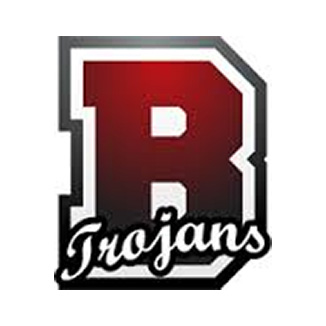Teacher Advisory Council
Angelann Stephens

| Years teaching: | 16 |
| Subjects: | English |
| Education: | Ed.S., Liberty University (Curriculum) M.A., North Carolina A&T State University (African-American Literature) B.A., University of North Carolina at Charlotte (English) |
Angelann T. Stephens is a veteran high school English teacher from Atlanta, Georgia. She is trained in Advanced Placement English Language and Literature & Composition. In recent years, Angelann has shared the following presentations at the College Board’s Annual Advanced Placement Conferences: “The Interactive Notebook for Scaffolding Pre-AP Content for Nontraditional Students”; “Differentiated Instruction in the Time of Common Core: Three Strategies”; “Making the Synthetic Argument Applicable to Younger Students”; “Teaching the Research Paper to ‘At-Risk’ Students Using Children’s Literature.” Her presentations, as well as her teachings, concentrate on supporting students and teachers in urban settings where there are traditionally high poverty rates, poor academic performances, and achievements. She currently teaches at Benjamin Banneker High School in College Park, Ga for Fulton County Schools. Previously, Angelann worked for the troubled Atlanta Public Schools, teaching at Benjamin E. Mays High School for several years. She has been successful helping underachieving, gifted, and at-risk students meet the academic requirements of AP and state exams. She attributes her successes to being “culturally relevant”; she embraces the idea of a social justice curriculum and believes that purposeful technology and exposure to worldly injustices are the arsenals to leverage poor minorities to opportunities and economic access in this country.
“I learned about the National Humanities Center when I attended a Gilder Lehrman Summer Institute. I was very impressed with some of the close reading activities; I even used their lesson on Frederick Douglass’s ‘What to the Slave is the Fourth of July?’ as part of my presentation at the summer institute. Since then, I have used countless resources from the Center to bridge difficult texts and primary documents to struggling readers. One of the problems I see in education is this demand for more rigorous work, but district leaders and instructional leaders rarely can show what that looks like. When teachers go to purchase materials, they find sample questions and essay questions, but those don’t help a teacher who teaches in an environment like my school. Teachers need scaffolding tools to help them break down texts to help students. And, at my school, in particular, they need scaffolding tools to help them teach; schools similar to Banneker don’t have teachers with experience; in a staff of about 100 teachers, we have approximately 8–10 teachers with more than five years experience. So, we have teachers that do not know their content and their craft. The National Humanities Center’s activities and lessons are resources that not only help students, but they can help teachers who lack the experience of teaching difficult texts. Such resources do a lot of ‘lifting’ for teachers and students. I want to be a part of this organization because I want to affiliate with people who are tuned-in with learners’ and teachers’ needs. I also want to see how I can help the organization reach other schools that are instructionally similar to mine. I am technology-savvy, so I would like to add even more 21st century technological skills and resources to the lessons and resources since many schools and districts have moved to 1:1 devices.”
